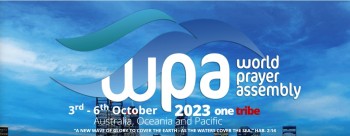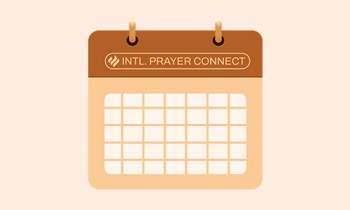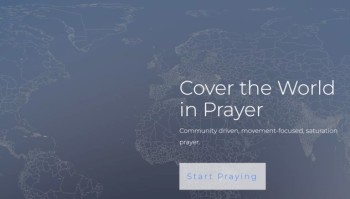
Super User
Lorem ipsum dolor sit amet, consectetur adipisicing elit, sed do eiusmod tempor incididunt ut labore et dolore magna aliqua. Ut enim ad minim veniam, quis nostrud exercitation ullamco laboris nisi ut aliquip ex ea commodo consequat. Duis aute irure dolor in reprehenderit in voluptate velit esse cillum dolore eu fugiat nulla pariatur
Join over 1 million believers who will engage in prayer for Israel for at least one hour a day for 21 days (May 7-28) for the increase of God’s salvation promises and plans for Jerusalem and Israel. Some will pray alone and others will pray with 2 or more (Mt. 18:20) —virtually or in-person— in their home, office, dorm, or at their church, etc.
A collaboration of several thousand ministries—including Lou Engle, Jason Hubbard, Mike Bickle — are calling 1 million believers to participate in a global solemn assembly (May 7-28)to fast in various ways and to pray for the Lord’s purposes for Israel AND to ask Him to raise up 100 million intercessors for Israel according to His promise in Isaiah 62:6 to sovereignly “set,” “appoint,” or “mark” intercessors who will remind the Lord of His promises for Jerusalem until Jesus returns. Isaiah 62:6 is an end-time promise that is now escalating across the earth.
On your walls, O Jerusalem, I have appointed [set, KJV] watchmen; all day and all night they will never keep silent. You [intercessors] who remind the Lord, take no rest for yourselves; 7And give Him no rest until He makes Jerusalem a praise in the earth [at Jesus’ return]. (Isa. 62:6-7, NAS)
In the first 3 weeks of announcing this fast on March 7, over 1,000,000 are set to participate in various ways. By May 7, far more than 1 million who will engage in this 21-day fast in various ways (some will fast on water, some on vegetables, or juices, or taking one meal a day, and some will “fast media” instead of food, etc.).
Believers hold various eschatological positions. The Isaiah 62 website does not address any eschatological position. It invites believers of all positions to pray 21 days for Jerusalem and Israel.
The IHOPKC prayer room is committed to worship and pray non-stop 24/7 for 3 weeks (May 7-28) for Israel. Over 300 on the IHOPKC full-time ministry staff have personally committed to be in our prayer room for 6-12 hours a day for all 21 days. I am grateful for their response to lay aside many of their normal responsibilities to do this! The IHOPKC prayer room is only one of many HUBs engaging in this. For more info on how your church or ministry can be a HUB see isaiah62fast.com or the Isaiah 62 Fast Facebook page.
The isaiah62fast.com website identifies churches, ministries, Bible studies, youth groups, etc. that desire to be a “HUB” that provides ministry resources, regular communication, etc. in mobilizing others for 21 days (May 7-28). If you want your church or ministry info listed on isaiah62fast.com,then click on the link for more information.
Israel’s national repentance (Act 3:19) and confession that Jesus is Messiah (Mt. 23:39) is deeply connected to Jesus’ second coming, the Great Commission, and “life from the dead” for the whole earth (Rom. 11:15).
This will be the first time in history that far more than 1 million will continue 24 hours a day for 21 days in praying for God’s promises for Israel. The uniqueness of this prayer initiative is itself a sign of the times and an acceleration of God’s “set time for a generation yet to be created” to engage together in His purposes for Israel (Ps. 102:13, 18).
You will…have mercy on Zion [Jerusalem]; the time to favor her, Yes, the set time, has come… This will be written for the generation to come, that a people yet to be created may praise the Lord. (Ps. 102:13-18)
This 21-day fast is a “global Esther moment” (Esth. 4:14-16) that will be a significant down payment for the final ultimate global Esther moment when millions of believers will engage in prayer, speak out boldly for God’s purposes for Israel (as seen in Scripture), and stand with Israel as anti-Semitism increases until Jesus returns (Zech. 14:1-5). This fast is also important for today as Israel faces several very significant conflicts.
14“For if you remain silent [unresponsive] at this time, relief and deliverance will arise for the Jews from another place…who knows if you have come to the kingdom for such a time as this?” 15Then Esther told them to reply to Mordecai: 16“Go, gather all the Jews… and fast for me… My maids and I will fast …so I will go to the king… and if I perish, I perish!” (Esth. 4:14-16)
More info, resources, videos: https://isaiah62fast.com/
WPA - October 3-6 2023 - One tribe, One family, One generation
“A NEW WAVE OF GLORY TO COVER THE EARTH - AS THE WATERS COVER THE SEA.” HAB. 2:14
On behalf of International Prayer Connect, MY Home Indonesia and many international partners, we would like to invite you to join us for a very important and significant worldwide event taking place this October from 3rd – 6th in Perth, Western Australia.
Thousands of Christians from all over the world, Churches, Prayer and Mission organisations will be taking part in this unique gathering, and we really want you to have the opportunity to unite as one.
From Rev Margaret Court: 'This Nation has had many prophetic words spoken over her. This land is the “Great Southland of the Holy Spirit”. God is waiting for His church to usher in the greatest end time move through the power of the Holy Spirit. We didn’t ask for the World Prayer Assembly to come here to Perth; other Nations spoke it in and we accepted it. God is gathering His people to bring Revival Fire to the Nations. May the rains of “mercy”pour down on our Nation and the Nations.'
Eph 1:17 – “May the church have the spirit of wisdom and revelation in the knowledge of Christ.” That our Nation be known as a Christian Nation once again and may all the earth be filled with His Glory. In Jesus Name, Amen
From Dr Jason Hubbard: We invite people of every tribe, family and generation to join us as we unite in worship and prayers for Australia, New Zealand, Oceania and the nations of the world! “My name will be great among the nations, from where the sun rises to where it sets. In every place incense and pure offerings will be brought to me, because my name will be great among the nations” – says the Lord Almighty.
REGISTRATIONS ARE NOW OPEN! - sign up before May 31st for an early ozzie bird discount!
As soon as we receive registrations, we can be in touch with official invites for visa purposes
Full details of the program at Perth Convention Center will follow shortly – in the meantime, do register, do sign up for email updates, and please follow us on social media & share this post far and wide!
A warm Aussie welcome awaits you in sunny Perth!
More info and Register at https://www.wpa2023au.org
If your heart is with us, but you are unable to travel this time, do sign up for emails and if you are prompted, send a love gift.
The annual G7 Summit will take place in Hiroshima, Japan 19-21 May 2023.
The team at the World Prayer Centre, Birmingham, UK are calling Christians to join them from around the world (especially in the G7 nations) on Zoom on Saturday 20th May at 10 am BST/ GMT +1
We will pray for the Summit and for the G7 leaders from France, UK, USA, Germany, Japan, Italy and Canada, together with the President of the European Council and the President of the European Commission.
More info and meeting link at: https://worldprayer.org.uk/events/g7summit/
Ascension Day is coming! - Thursday, May 18, 2023
Will you be ready to celebrate? We can help!
- David Bryant
We've got Christmas - Jesus’ incarnation.
There’s Good Friday - Jesus’ crucifixion.
Plus Easter - Jesus’ resurrection.
The Church worldwide celebrates all three…
But what about ASCENSION DAY - Jesus’ coronation? Without that cosmic event, everything else our Savior did for us would be rendered null and void.
However, he did ascend! God's Son sat down at the right hand of the Father to “seal the deal” for our eternal salvation. There, he was crowned as King of the universe, Ruler of the nations, Head of the Church, and Lord of your life and mine.
It's time to celebrate! We can do so the next 21 days along with Jesus followers around the globe using a brand-new resource: EXALTJESUS.LIFE
A 21-Day Video Journey to the Ascension. A 21-Day Video Journey into More of Christ.
Exalt Jesus is a brief, daily video and prayer experience developed by CHRIST NOW in collaboration with INTERNATIONAL PRAYER CONNECT. It is designed to enliven and deepen your relationship with your Savior.
Exalt Jesus is a free opportunity for you to dig into more of what being wholly alive to the reigning Christ can mean for you! Thousands in many nations have used the resource already.
Exalt Jesus can be used personally or with a group, congregation, or ministry.
Exalt Jesus helps you spend 15-25 minutes a day with the Lord Jesus Christ between April 27 and May 18, encountering more of his spectacular supremacy and getting ready to CELEBRATE HIS ASCENSION!
Join the EXALT JESUS 21-day video journey!
Join Christians worldwide in this exciting lead-up to Ascension Day 2023.
Join us as we explore and celebrate the person of our risen, enthroned Redeemer King.
Begin your journey here! - https://www.exaltjesus.life/
110 Cities Prayer
www.110cities.com
Global Family 24-7 Prayer Room
https://www.globalfamily24-7prayer.org/
Prayer Covenant for Children Mobile App
theprayercovenant.org/mobileapp/
GO PRAY
April 30
www.gopray.world
GO MONTH
May 1-31
www.gomovement.world
Holy Convocation, UK
May 4-6
This email address is being protected from spambots. You need JavaScript enabled to view it.
Isaiah 62 Fast
May 7-28
www.isaiah62fast.com
Gideon 300
May 7-28
www.ihopkc.org/gideon300
Uk Coronation Prayer
May 5
www.worldprayer.org.uk
G7 Prayer Summit
May 20
www.g7prayersummit.org
One Miracle Night
April 17
www.onemiraclenight.org
Exalt Jesus
April 27-May 18
www.exaltjesus.life
10 Days - Pentecost
May 18-28
www.10days.net
GO DAY
May 27
www.gomovement.world
Pentecost 2023
May 28
www.pentecost2023.org
Amsterdam 2023
June 21-24
www.amsterdam2023.com
Global Day of Hope
August 26
www.globaldayofhope.com
World Prayer Assembly - Perth
Oct 3-6
www.wpa2023au.org
Our vision is to see the 110 most unreached cities in the world reached with the Gospel, praying for thousands of Christ-exalting churches to be planted among them!
We believe prayer is key! To this end we are reaching out in faith to cover this outreach with the powerful prayers of 110 million believers - for breakthrough, praying around the throne, around the clock and around the globe!
WILL YOU JOIN US?!
Watch the video invitation to pray with 110 million people for 110 strategic cities! (Psalm 110:3)
Here’s 3 ways you can get involved with 110 Cities!
The 110cities.com website is chock full of resources to use in whatever way suits you... browse the 110 Cities and their prayer points along with the 24-7 worship and prayers of our Global Family 24-7 Prayer Room or stream the International House of Prayer Kansas City worship and intercessions.
Join us now at: https://www.110cities.com/
Come to the Table is a collaboration of worldwide prayer & missions networks & movements, uniting in global prayer, communion & mission in 2023.
The 40+ leaders gather monthly to hear from the Lord and each other, and to pray. We are excited to be experiencing a growing unity that is bound by our common vision to see all peoples reached with the message of the Gospel. (Luke 10:2)
We agree that prayer and mission together is the key!
The listing on the website contains just some of the many joint worldwide events that are taking place this year.
We invite you to bookmark the page and to visit us regularly for updates!
Ian Cole, Senior Advisor to IPC and founder of the World Prayer Centre, Birmingham, UK has written an Easter to Pentecost Declaration to declare the truths of God from Easter through to Pentecost. Read / pray it below!
AN EASTER TO PENTECOST DECLARATION 2023
I declare today the greatness and love of God the Father.
The supremacy of His Son Jesus the Christ, and the power and eternal work of the Holy Spirit.
FATHER GOD. I declare You are perfect in all your ways; in love, justice, goodness, wisdom mercy and grace.
Your love for the world You created and all its people never ends.
Father God, I declare you are my Rock, my Deliverer and my Sustainer.
I declare your love for me, my family, my friends and my community, never ends.
JESUS. Today I declare that you lived, died, rose and ascended to the right hand of your Father, there to intercede for me.
By the grace of God, I declare you are my Saviour, Redeemer, Healer and coming King.
I declare that through your blood Jesus, I am ransomed, healed, restored and forgiven.
I am a child of God!
Today, I declare that in your name Jesus, through your victory at the cross,
I will silence the lies of satan and nullify his schemes.
HOLY SPIRIT. Thank you Holy Spirit for inspiring people to write my bible reading today.
I declare that this same Holy Spirit, who raised Christ from the dead, is dwelling in me.
Holy Spirit, “It is your breath that enables me to live, serve, worship,
praise and represent Jesus to those I meet today.”
I declare that the same courage and boldness you gave the early Christians
at Pentecost is available for me to use every day.
My prayer today
Thank you, Father, Son and Holy Spirit. I live every moment with your presence, promises and power surrounding me, because you promised never to leave or forsake me. Hallelujah!
Thank you, Father, Son and Holy Spirit that your answers far outweigh
the problems and challenges I am facing. Hallelujah!
Thank you, Father, Son and Holy Spirit, the plans You have for me,
supersede satan’s schemes and attacks. Hallelujah!
Thank you, Father Son and Holy Spirit that I can join with all of heaven and with millions of brothers and sisters around the world in praise, thanksgiving and worship this Easter to Pentecost season.
CHRIST IS RISEN HALLELUJAH!
2023 © World Prayer Centre. The declaration can be copied and distributed freely acknowledging World Prayer Centre
www.worldprayer.org.uk
Ian has also written “A Gift of Hope”. The new e-book contains the Trilogy of Hope articles written by Ian Cole and the Daily Declaration.
May the Gift of Hope bring you joy at Christmas! If you would like to purchase the Gift of Hope e-book, you can purchase and download here.
He has also written a Daily Declaration. Let us declare faith, hope, and truth for us and our families.
Download a PDF of the declaration
Prayer Global is an interesting new prayer tool that enables you to strategically pray for specific places and peoples in the world!
The site has a method for integrating a community together to pray for 4,770 provinces/counties (1 "lap around the world") - "300 people, each praying 16 minutes, can pray for every place in the world --1 lap-- in one week."
Very easy to use and engaging! Prayer.Global is available on iPhone/iPad and Android platforms.
Check out this 10-minute video describing it
Monday 17th April, 2023, (From 8am EST)










